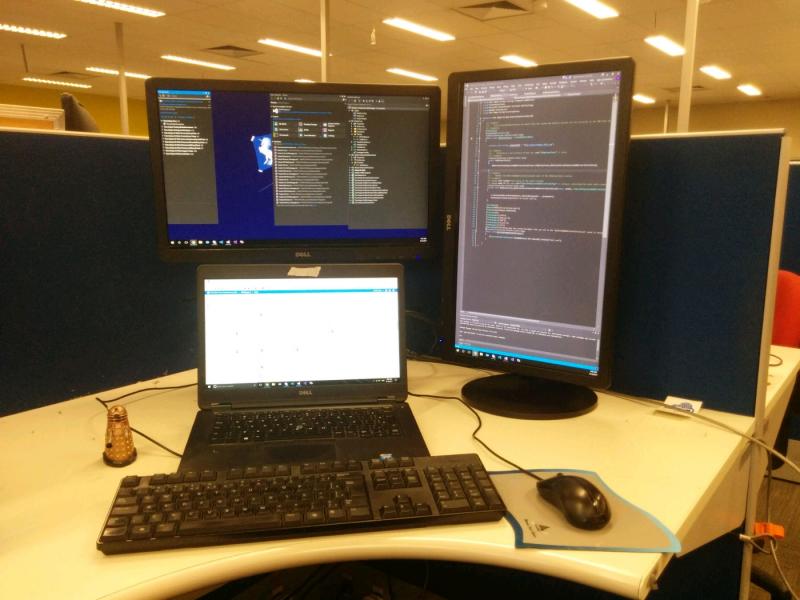Ranter
Join devRant
Do all the things like
++ or -- rants, post your own rants, comment on others' rants and build your customized dev avatar
Sign Up
Pipeless API

From the creators of devRant, Pipeless lets you power real-time personalized recommendations and activity feeds using a simple API
Learn More
Comments
-
I know where you're coming from. There are times that you can be productive but can feel unproductive at the same time due to the environment.
I feel like that just now. I've completely rewritten a sequential SQL ETL that is monolithic python scripts with embedded SQL into a CLI that executes .sql files in a DAG based on a yaml config file.
I'm able to implement feedback from the end users to add new features very quickly but it will likely be the middle of next year until it is actually fully adopted.
I can feel productive implementing the new features but won't really feel like it has been worth it until the end users actually adopt it. -
Gaskoin362yMy search for the best employee feedback tool led me to an exciting discovery. After hours of researching and sifting through various resources, I finally stumbled upon an article that highlighted the "Ultimate Employee Feedback Tool." This well-researched piece delved into the features, benefits, and success stories of this tool, making it clear that it could revolutionize our feedback process. With this https://effy.ai/blog/... newfound information, I am eager to introduce the tool to our organization, fostering a culture of open communication and continuous improvement among our employees.
Related Rants

 I see this message after 75 days without closing devRant.
I see this message after 75 days without closing devRant. They just bought 2 fucking 23" extra monitors for every developer in my org.
FEELS GOOD MAN
They just bought 2 fucking 23" extra monitors for every developer in my org.
FEELS GOOD MAN
I can work productively and for very long hours with a lot of stuff which many dev considers productivity hurdles:
- single small monitor? No problem (in fact in one occasion in which my roommate accidentally broke my laptop charghing port and I couldn't get a spare I worked on an iPad connected trough SSH to a Linux machine completing one of the hardest tasks I ever did without significant loss of productivity)
- old machine? That's ok as long as I can run a minimal Linux and not struggle with Windows
- noise and chatter around me? A 10€ pair of earbuds are enough for me, no noise cancelling needed
- "legacy" stack/programming language? I'd rather spend my days coding in Swift or Rust but in the end I believe which is the dev and its skill which gets the job done not fancy language features so Java 8 will be fine
- no JetBrains or other fancy IDE? Altough some refactoring and code generation stuff is amazing Neovim or VS Code, maybe with the help of some UNIX CLI tools here and there are more than enough
despite this I found out there is a single thing which is like kryptonite for my productivity bringing it from above average* to dangerously low and it's the lack of a quick feedback loop.
For programming tasks that's not a problem because it doesn't matter the language there's always a compiler/interpreter I can use to quickly check what I did and this helps to get quickly in a good work flow but since I went to work with a customer which wants everything deployed on a lazily put together "private cloud" which needs configurations in non-standard and badly documented file formats, has a lot of stuff which instead of being automated gets done trough slowly processed tickets, sometimes things breaks and may take MONTHS to see them fixed... my productivity took a big hit since while I'm still quick at the dev stuff (if I'm able to put together a decent local environment and I don't depend on the cloud of nightmares, something which isn't always warranted) my productivity plummets when I have to integrate what I did or what someone else did in this "cloud" since lacking decent documentation everything has do be done trough a lot of manual tasks and most importantly slow iterations of trial and error. When I have to do that kind stuff (sadly quite often) my brain feels like stuck on "1st gear": I get slow, quickly tired and often I procrastinate a lot even if I force myself out of non work related internet stuff.
*I don't want this to sound braggy but being a passionate developer which breathes computers since childhood and dedicating part of my freetime on continuously improving my skill I have an edge over who do this without much passion or even reluctantly and I say this without wanting to be an èlitist gatekeeper, everyone has to work and tot everybody as the privilege of being passionate in a skill which nowadays has so much market
rant
feedback loop
productivity
procrastination